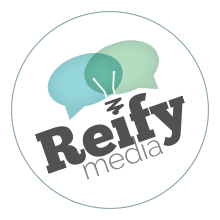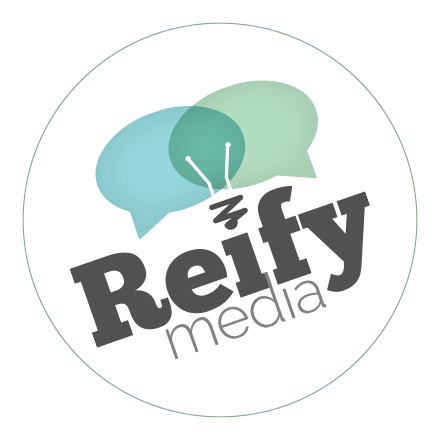Want to see me stumble during a speech or event? Just ask me this one question…
“So Sarah, tell us—how’d you get to where you are today?”
The Weird Question: Ask for the “Journey” Story
It’s a weird question to struggle with. I mean, I’m happy to tell you what tech and eLearning trends my company is focusing on in 2018… I’ll talk your ear off about that stuff.
But ask me how I got to where I am? Watch out, ’cause I’m gonna say something awkward.
“How I got here?” I’ll half-stutter, half-laugh. “I mean, Google Maps, of course! Ha… ha…”
Awkward.
Who’s Asking
Look, I’m not a rock star – and I’m not claiming to have reached some successful peak. But people love this question, and wonderfully, I have opportunities to speak about women in entrepreneurship, women in tech, and trends in technology and education. In these forums, it’s common for someone to ask me to describe my journey.
And when I’m at conferences, or tuned into podcasts, or watching celebrity interviews, or at a job expo, or meeting people at networking events, I hear the question asked to others a lot, too.
There’s a reason this question is hard for me. I feel like people want to hear some elevator-speech Instagram quote, like this:
“I woke up one day and said, ‘Let’s do this!’ It took a lot of hard work, passion, luck, and support from wonderful people, but it worked out. Plus, I drink a lot of coffee!”
Easy! Also boring, ambiguous, and unhelpful.
Real Answers
Sometimes, I think we want to hear that the recipe is simple. (An overnight success, just by combining hard work and passion with luck and support! Ta-da!) But how many stories really fit that formula?
The truth is, it would take a lot more than an elevator speech for me to describe my journey. Same for you, I bet.
And, there are parts of the story that are hard to say with confidence and a winning smile: like the parts where it was really hard. The parts where I wasn’t sure if I was doing the right thing. The parts where I tried and failed.
And – and! – of course, this isn’t a finished journey. My company is working really hard to create amazing things, to attract great clients, and to implement cutting-edge technology trends. We’re doing great, and we have a lot left to do.
That’s why I love this quote by Malcom Gladwell:
There’s no such thing as overnight success. That’s my concern with a show like American Idol. It encourages the false belief that there’s a kind of magic, that you can be ‘discovered.’ That may be the way television works, but it’s not the way the world works. Rising to the top of any field requires an enormous amount of dedication, focus, drive, talent, and 99 factors that they don’t show on television. It’s not simply about being picked. Which, by the way, is why very few of the anointed winners on American Idol have gone on to true success. Most have flamed out and gone away. That should tell us something.
Let’s Keep Talking: 5 Things to Keep in Mind
When I’m listening to others speak, I love to hear them describe their journey. So I don’t think we should stop asking this question.
But here are five things I keep in mind when I’m listening to other people talk about “how” they got to where they are today:
- Inspiration is different from investigation:
I think one reason we love to ask this question is that we love to be inspired. It’s fun to hear about the Olympic athlete who wakes up at 4:30 am to train, and we cheer loudly for her when she stands on the podium, imagining the sense of achievement and pride that she must feel. Sometimes I have to remind myself that we’re asking this question because we like to hear inspiring stories—not necessarily because we’re investigating a person’s exact journey. I remind myself that people answering this question often feel pressure to point to the more inspiring parts of their journey – the parts where they worked really hard and then saw great results. And that’s okay! I just keep in mind that, with more time, or with more follow-up questions, the person might be comfortable sharing more information about the real ups and downs of their journey. - Think of these stories like Christmas cards:
I love Christmas cards – little updates from people I love, with the highlights of their year. I see which of my cousins and college friends are getting married, having children, adopting pets, starting businesses, earning degrees, etc. Of course, Christmas cards don’t tell you as much about the other stuff – who had to unexpectedly spend their vacation fund on a new roof, what recipe attempts did not make it to Instagram, which kids had more sick days… a lot of times, when people share their story, they share a Christmas-card version: they may highlight some of the struggles, but in a “we overcame it” kind of way. The point of the Christmas card is to share the highlights—and the same can be true of the “journey” question. That helps me to frame what people are sharing. - People forget stuff:
I definitely think most people try to be honest when answering the “journey” question. But it’s easy to forget stuff! And if you’re on the spot in front of an audience, it’s harder to remember and think and talk. Once, when I was telling someone my journey, I shared that I officially launched my company in 2009. But in reality, it was 2009 when I started freelancing; it wasn’t until 2012 that I launched the brand Reify Media. I’ve also made another mistake before: I’ve told people that I stayed at my other full-time job for two years before transitioning 100% to my startup. In reality, it was more like three years. I wasn’t intentionally lying, but because there was some maternity leave mixed up in that, it’s confusing in my mind… (and I want to make sure I share the truth, but I think maternity leave is a good excuse for a black hole in a memory, tbh). Point is, I think we can enjoy an opportunity to hear these stories, but we should also remember that we’re hearing them retold by a wonderfully imperfect human. Details are tricky. - Different books, different chapters:
The most important thing I remember is that everyone I meet is at a different point in their story – a different chapter in their life, if you’ll allow me that corny metaphor. Even if someone tells a remarkably true and comprehensive story about their ups and downs, one that’s inspirational but also instructive – I try to remind myself that he or she might be on chapter 12, and it’s okay for me to still be on chapter 2. There’s no need to compare my story with theirs. I try to take something away without feeling like I have to measure up with the timeline they’re sharing. - Not a map. A compass.
One of my favorite speakers, Dr. Joe LeBoeuf, once invited me and a class at the NextGen center to think of values like a compass. Rather than a map, which is only helpful in specific geographic areas and terrains, a compass can guide you no matter what the conditions. When I’m listening to others’ stories, I look for pieces that can help me like a compass. If I tried to apply their stories like a map – if I tried to follow their exact journey – I’d get lost, because I’m not the same person they were, and I’m not trying to go to the same place that they went. But if I think of it like a compass – like a helpful guide, pointing me in a direction, then I think I can better fit their advice and inspiration with my unique challenges and goals.
Other Questions?
And, if there’s time, I love some of these other questions, to supplement the “Journey” story:
- What are some books, articles, podcasts, stories, etc., that helped to inspire you when things were difficult?
- Who were some of the mentors who helped you along the way?
- What challenges do people face today that are different from the challenges you faced when you started?
- Can you share a story of a time when you failed? What did you learn?
- What is something that you’ve been working on for a long time, that’s taken years to learn or accomplish?
- What technology exists today that you wish you’d had access to when you started?
- Can you share a bit about your values, and how you live those values during your journey?
- Who are some leaders that you admire?
Many of these questions still invite an inspirational answer, but when pulled together, may quilt together a more comprehensive picture of the ups and downs we all face when trying to navigate these journeys.
So, Next Time…
Hopefully next time someone asks me about my journey, I won’t answer awkwardly that Siri told me where to go: I’ll share, honestly, some of the ups and downs that I’ve experienced along the road to becoming a business owner, earning my PhD, serving as President of NAWBO Greater Raleigh, and building an award-winning digital media team. Then I’ll make space to share some of the other highlights… like second-guessing my decisions, creating failed business plans, receiving hundreds of rejection letters, and learning from mistakes.
And maybe I’ll have time to add room for the unknown, too; after all, I’m still a journey in progress.




























